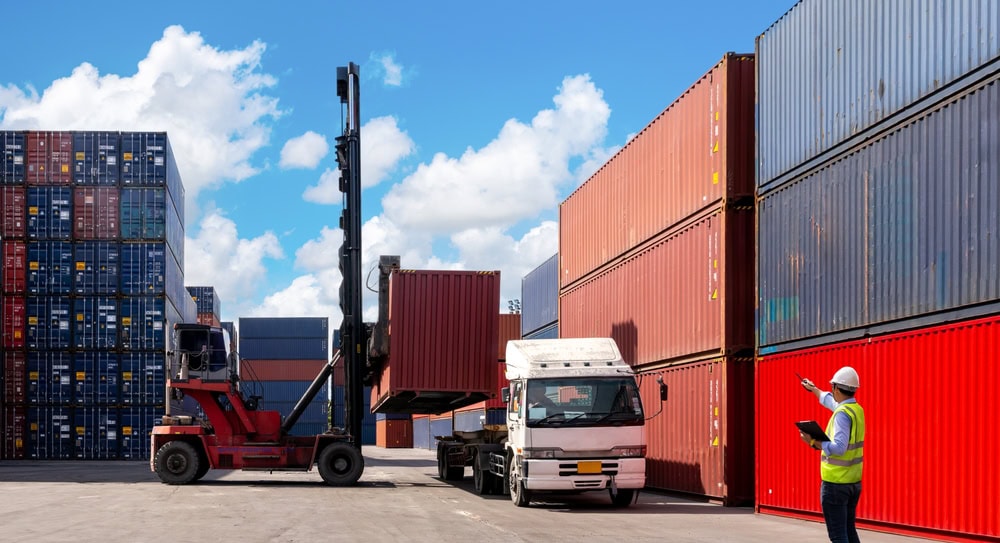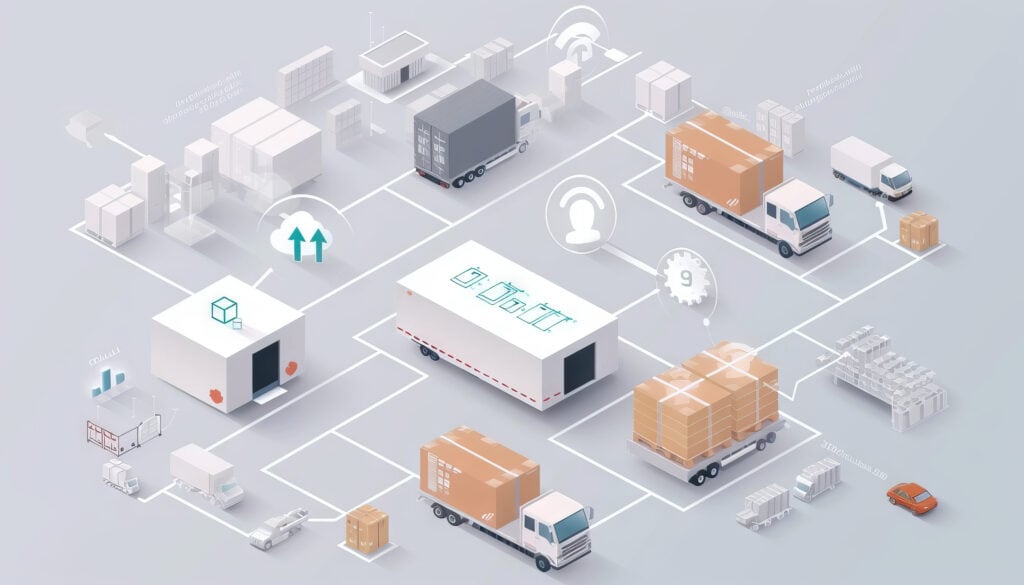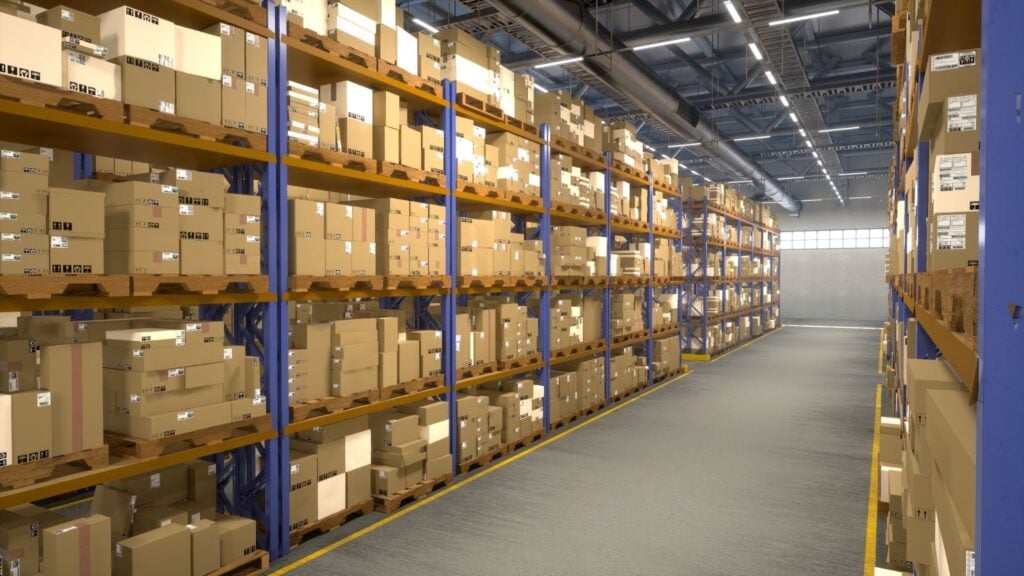Articles
Knowledge Center

Direct vs. Indirect Distribution Channels: Understanding the Differences
Distribution channels are essential in business, serving as the routes that products and services take to move from producers to consumers. The efficiency of a distribution channel directly impacts a company’s ability to meet customer demands, manage costs, and maintain competitiveness in the market. Selecting the right distribution channel is important for making sure that […]
Read More
Lean Six Sigma in Supply Chain: Definition, Importance, and Implementation
Lean Six Sigma blends rigorous quality controls with strategies to cut inefficiencies, making it a top choice for improving supply chain operations. It roots out waste and enhances product consistency by merging the strengths of Lean methodologies and Six Sigma principles. This approach not only sharpens competitive edges but also ensures products and services meet […]
Read More
Demand-Driven Supply Chain: Definition, Benefits, and Implementation
A demand-driven supply chain offers significant strategic advantages in today’s competitive market. By focusing on customer demand and leveraging real-time data, businesses can achieve increased customer satisfaction, reduce lead times, and optimize operations planning.
Read More
FCL vs LCL: Understanding the Differences
Selecting between Full Container Load (FCL) and Less than Container Load (LCL) is a strategic decision that impacts every aspect of international shipping.
Read More
How Does Integrated Business Planning (IBP) Drive Supply Chain Efficiency?
6 ways that Integrated Business Planning (IBP) improves supply chain efficiency.
Read More
Contract Manufacturing Explained: Benefits, Tips, and Challenges
Contract manufacturing plays a key role in modern supply chains. It can enable businesses to focus on core competencies while leveraging specialized expertise and cost efficiencies. This strategic outsourcing approach enhances operational flexibility and positions companies to scale rapidly in response to market demands.
Read More
Best Practices for Effective Cold Storage Management
Effective cold storage management requires a combination of precise temperature control, robust inventory management, and strict safety measures. By following these best practices, businesses can ensure the quality and integrity of their temperature-sensitive products.
Read More
Backward vs. Forward Integration: Their Key Differences
When looking at backward vs forward integration, each offers unique advantages within supply chains.
Read More
Supply Chain Metrics: Definition, Types, and Importance
Supply chain metrics critically enhance logistics and shipping operations by providing precise, actionable data to streamline processes and optimize efficiency. These key metrics, from inventory turnover to freight cost analysis, empower businesses to make informed decisions that improve overall supply chain performance.
Read More
Cold Chain Logistics: Definition, Industries, and Elements
Cold chain logistics is important in maintaining the quality and safety of temperature-sensitive products. By understanding and implementing the key elements of cold chain logistics, businesses can ensure that their products remain safe and effective throughout the supply chain.
Read More
Retail Inventory Management: Definition, Importance, and Key Components
Effective retail inventory management is crucial for the success of the retail and logistics sectors. By adopting automated inventory systems, demand forecasting, and supplier relationship management strategies, businesses can maintain optimal inventory levels and improve their inventory turnover ratio.
Read More
Chemical Warehousing: Definition, Types, and Safety
Understanding the complexities of chemical warehousing is crucial for ensuring safety, regulatory compliance, and operational efficiency. Effective chemical storage solutions help manage diverse chemical properties and mitigate physical hazards.
Read More
Medical Warehousing: What It Is, Challenges, and Best Practices
Medical warehousing is vital in healthcare logistics, securing the safe and efficient storage and distribution of critical medical supplies. Facilities dedicated to medical warehousing manage everything from pharmaceuticals to medical devices, ensuring these items retain their integrity from the warehouse to delivery. Effective management in these warehouses is essential for maintaining product safety and supporting […]
Read More
Inventory Turnover Ratio: What It Is, How to Calculate and Significance
Understanding the inventory turnover ratio provides invaluable insights into a company’s operational efficiency and financial health. It measures how often a business sells and replaces its stock within a given period, offering a clear snapshot of inventory management efficiency. An optimal inventory turnover ratio measures indicates a company sells goods quickly, suggesting strong customer demand […]
Read More
What is Inventory? Definition, Types, and Challenges
Effective inventory control and management ensure that companies can meet customer demand efficiently while maintaining optimal inventory levels.
Read More
4 Types of Pallets and Their Uses
Understanding and selecting the correct type of pallet—considering factors like load capacity, compatibility with goods and handling equipment, cost-effectiveness, and compliance with international standards—is vital for optimizing operational efficiency and ensuring safe, compliant transport of goods.
Read More
Supplier Relationship Management: What It Is, Importance, and Challenges
Supplier relationship management (SRM) is vital for modern business practices. Effective supplier relationship management strategies enhance supplier management, prevent supply chain disruption, and foster strategic alliances.
Read More
Micro Warehousing: Definition, Trends, and Benefits
Micro warehousing presents both advantages and challenges. Its benefits include faster delivery, reduced shipping costs, and improved customer satisfaction. However, it also involves higher operational costs and increased complexity in inventory management.
Read More
Logistics vs. Transportation: Their Key Differences
Understanding logistics vs transportation is crucial for anyone involved in supply chain management and commercial shipping. These terms, while often used interchangeably, have distinct meanings and roles. Logistics involves the planning and coordination of transportation and distribution services, managing the supply chain, and ensuring efficient transportation of goods. Transportation, on the other hand, focuses on […]
Read More
FCL: Meaning, Importance, and Key Characteristics
Understanding FCL meaning and its significance in commercial shipping and logistics is essential for businesses engaged in international trade. By opting for FCL, businesses can enjoy cost savings, reduced handling, and greater control over their shipments.
Read More